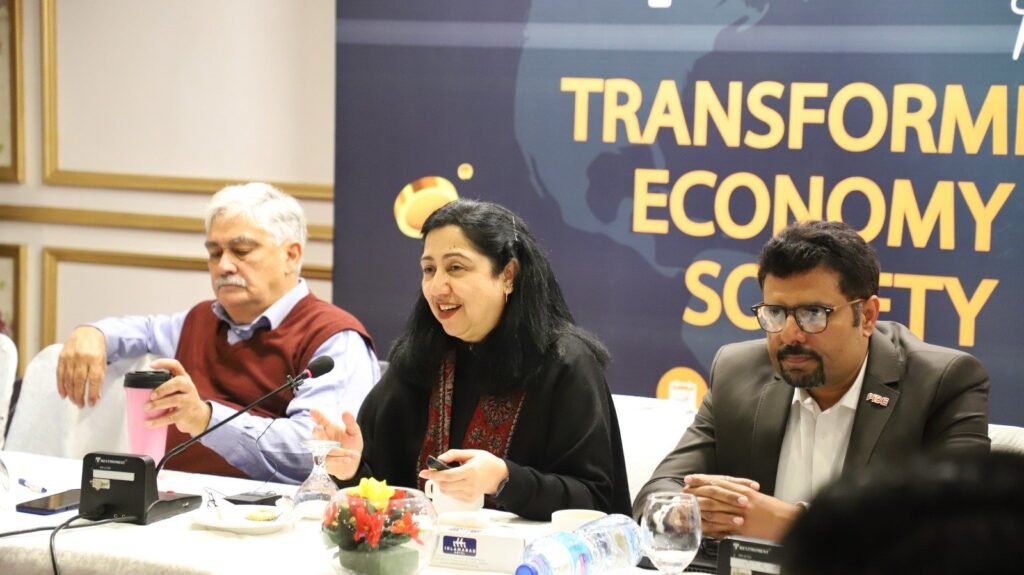ISLAMABAD, Jan 16 (APP):Researchers and experts at a Think-Tank moot on Tuesday urged mainstream political parties to come up with a clear agenda of key-sector reforms and an improved governance system ahead of the general elections 2024, matching the country’s pressing needs.
It was the 4th moot “Transforming Economy & Society”, organized by the Pakistan Institute of Development Economics (PIDE) in collaboration with its partners.
They underscored the significance of transforming the economy and society in Pakistan, emphasizing the multifaceted nature of this imperative endeavor.
Speakers, who were representing different Think Tanks at the moot, stressed that addressing the challenges and opportunities faced by the nation required a comprehensive and collaborative approach.
Participants voiced a collective concern that if attention is not given towards these critical issues now, the consequences may become insurmountable in the future.
They emphasized the urgency of embracing reform for the betterment of Pakistan, with the consensus that proactive measures are essential to avoid reaching a point of no return.
In his opening remarks, PIDE Vice-Chancellor Dr Nadeem ul Haque said Pakistan, once envisioned as the next Asian Tiger, found itself grappling with persistent governance challenges since its inception into the League of Nations.
Despite successive governments’ promises of transformative change and substantial reforms, he said the efforts undertaken appeared akin to attempting to bail out a sinking ship with a thimble. “The enduring consequence is shouldered by the people of Pakistan, who continue to bear the brunt of these challenges.”
Dr Haque underscored the crucial need to recognize the historically passive nature of the demand side for reforms throughout the country’s history.
Addressing this passivity, he argued, was pivotal in fostering a more engaged and participative society as the nation sought a path towards sustainable and impactful reforms.
Dr Haque further noted that political party manifestos often highlighted broad policy directions and commitments. “Ideally, these commitments should be thoroughly evaluated when a party assumes power. With the upcoming General Elections scheduled for the 8th of February 2024, it is disheartening to observe the absence of discussions among political parties regarding a clear reform agenda aligned with the country’s pressing needs.”
PIDE Pro VC Dr Durre Nayab highlighting the crucial perspectives on urban development and governance, stressed the paramount importance of respecting the heterogeneity of cities and underlined the need for policies that cater to the unique characteristics of each urban center. “A critical observation surfaced concerning the challenges faced by vibrant cities within the existing governing structure, prompting the call for transformative policies to unlock the full potential of urban areas,” she added.
Emphasizing the instrumental role of local governments, Dr Nayab asserted their key position in delivering essential services and advocated for a decentralized approach to address the specific needs of local communities.
Notably, the Pro VC argued that true decentralization could only be achieved by granting autonomy to locally elected councils in their spending and planning decisions. “This perspective calls for a fundamental reevaluation of governance structures to empower local authorities and shape more responsive and vibrant urban environments.”
Earlier, PIDE Chief Research Dr Shujaat Farooq provided background on the Think Tank Moot, highlighting its role as a unique platform for esteemed partners and thought leaders to collectively address transformative and sustainable reforms.
He said PIDE had formulated a reform agenda “Transforming Economy & Society” identifying ten priority themes including political stability, reforms in civil service, productivity and competition, fiscal management, building social infrastructure, market efficiency.
Representatives from various organizations including Shifa Tameer-e-Millat University, National University of Science and Technology (NUST), Pakistan Poverty Alleviation Fund (PPAF), Pakistan Science Foundation, Quaid-i-Azam University, American Fishing Tackle Manufacturers Association (AFTMA), Akhtar Hameed Khan National Centre for Rural Development (AHKNCRD), Centre for International Strategic Studies (CISS), National Institute of Population Studies (NIPS), Institute of Strategic Studies Islamabad (ISSI), World Bank, Sustainable Development Policy Institute (SDPI), COMSATS, Establishment Division, Islamabad Policy Research Institute (IPRI), Prime Consultant, IIIE Institute of Islamic Information and Education, National Rural Support Programme (NRSP), Population Council, Centre for Aerospace & Security Studies (CASS), Independent News Pakistan (INP) Benazir Income Support Program (BISP), NUML, Beijing Institute of Technology, and National Commission on the Status of Women (NCSW) attended the moot.


